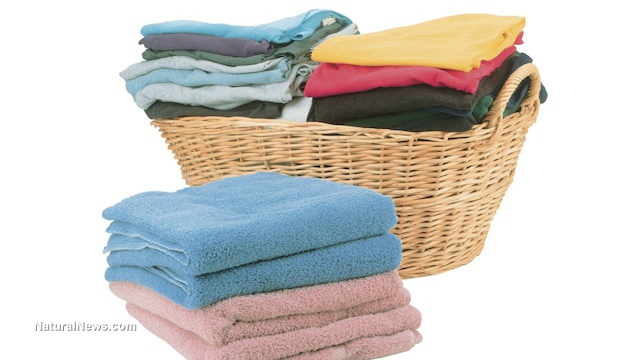The hidden dangers of dry cleaning exposed
01/01/2019 / By Russel Davis

Dry cleaning is extremely convenient. However, most dry cleaners use a solvent called perchloroethylene which is a harmful chemical and known carcinogen. The solvent is considered a contaminating pollutant that persists in nature. In 2012, the International Agency for Research on Cancer classified perchloroethylene under Group 2A. This categorization means that the solvent is potentially carcinogenic in humans. Perchloroethylene is deemed toxic to the human reproductive system, kidneys, skin, gastrointestinal system and the respiratory system. Long-term exposure to perchloroethylene may spur various side-effects such as nausea, headache, fatigue and impaired vision and coordination.
According to the American Cancer Society (ACS), people can be exposed to the solvent by breathing in fumes, by direct contact with the skin, or by ingesting contaminated food or water. People living near dry cleaning or metal degreasing establishments are exposed to higher levels of perchloroethylene in the air. People who work in such places tend to have the highest levels of occupational exposure to the solvent, according to the ACS. The solvent was also tied to an elevated risk of developing other forms of cancer such as leukemia and lung cancer, the health organization added.
Convenience at the cost of health
The Federal Agency for Toxic Substances and Disease Registry confirms the ACS findings, stating that workers of dry cleaners and metal degreasers had significantly increased risk of developing non-Hodgkin’s lymphoma. The agency also noted that these workers had higher odds of fertility issues, sperm and menstrual disorders, and spontaneous abortion.

A 2014 analysis also found that workers in dry cleaning facilities had an increased risk of developing bladder cancer. Researchers found that while these workers were exposed to various chemicals, perchloroethylene might be the primary culprit as it is the most commonly used solvent in the facilities. The findings were published in the journal Environmental Health Perspectives.
Data from a 2009 study revealed that people living in close proximity with dry cleaners that use perchloroethylene may raise the odds of developing kidney cancer. The results were published in the Journal of Environmental and Public Health.
A 2003 study published in the Environmental Health Perspectives found that women who were exposed to perchloroethylene-contaminated water had higher risk of developing breast cancer compared with those who were not exposed. Researchers also noted a dose-dependent effect, stating that patients who were in the upper percentiles of exposure were more likely to develop the disease than those in the control group.
Research published in the Journal of Occupational and Environmental Hygiene also found that persistent occupational exposure to dry cleaning solvents may increase the odds of genetic damage in dry cleaning workers. The results suggest that certain tests that determine DNA damage — such as chromosome aberration, micronuclei, and comet assay tests — may prove helpful in monitoring certain populations that are exposed to perchloroethylene.
People who are regular customers to dry cleaning facilities may inadvertently be affecting the air quality in their homes as traces of the toxic solvent may remain in the air even if the clothes are not worn. In fact, an investigation by the Colorado Department of Public Health and the Environment confirmed that many homes exhibit perchloroethylene contamination. Repeated exposure to the solvent may also cause skin dryness and roughness of the skin. It is ideal to use protective equipment in handling the chemical.
Know more about toxic solvents by visiting Toxins.news.
Sources include:
Submit a correction >>
Tagged Under:
This article may contain statements that reflect the opinion of the author





















